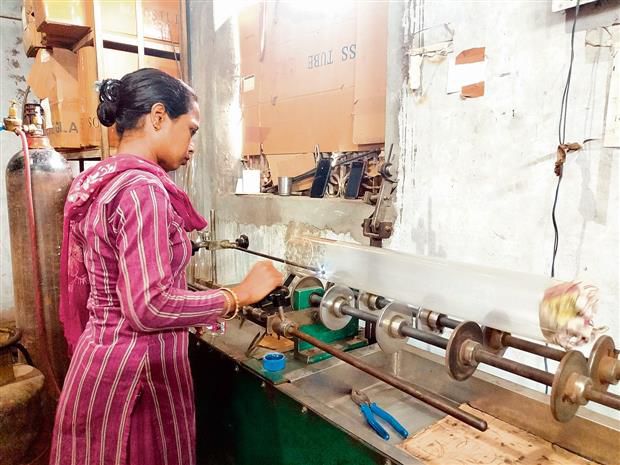Ambala: Small lab glass makers worried over mandatory ISI marking
Nitish Sharma
Ambala, July 29
The compulsory ISI marking on the selected glassware laboratory products has scientific apparatus manufacturers in Ambala worried. For, the new directive requires investment on infrastructure and small manufacturers are not in a financial position to bear the costs involved.
As per the Ambala Scientific Instruments Manufacturers’ Association (ASIMA), five items of the laboratory glassware — glass beakers, flasks, measuring cylinders, pipettes volumetric and one-mark volumetric flasks — now must carry an ISI mark.
Can’t spend on infra upgrade
- There are about 2,000 units in Ambala Cantonment and Saha area involved in making laboratory glassware, such as glass beakers, flasks, measuring cylinders, pipettes volumetric and one-mark volumetric flasks
- A large number of units are being run from small set up and are not in the financial condition to make hefty investment to set up labs and engage staff for the quality control and maintaining record
There are about 2,000 big and small units in Ambala Cantonment and Saha area. A large number of units are being run from small rooms from where they make products and supply orders.
Manufacturers said the majority of the people involved in the glass-blowing industry here had set up small units in their homes and it was not feasible for them to get the ISI certification. While the orders have been already implemented for the big industries, the medium and small industries have time until October 1, 2024 and January 1, 2025, respectively.
Review decision
The government’s decision will directly and indirectly hit the livelihood of about 50,000 people in Ambala. The association has requested the Central Government to review its decision. — Gaurav Soni, General Secretary, ASIMA
A glassware manufacturer said, “We have been manufacturing the products according to the laid down specifications. A majority of the manufacturers are already struggling for survival and playing on low margins due to competition. They are in no position to make hefty investments to set up labs and engage staff for the quality control and maintaining record. The government should provide technical and financial support if it wants to support the industry and the manufacturers.”
An industry player in Ambala said: “The government’s decision will bring standardisation but it will hit the cottage industry hard. It seems the government has been trying to benefit some big players as they already have all these facilities, but small manufacturers wouldn’t be able to arrange the required infrastructure. There should be a level-playing field. If the government wants to support the industry, it should give a financial package, technical knowhow and the onsite assistance.”
Gaurav Soni, general secretary, ASIMA, said: “The compulsory implementation of the order will increase the cost of the laboratory glassware, which are used in educational institutes. There are already NABL and ISI marked products available in the market, and the decision of buying these NABL and ISI marked product should be left to the buyer only.”









